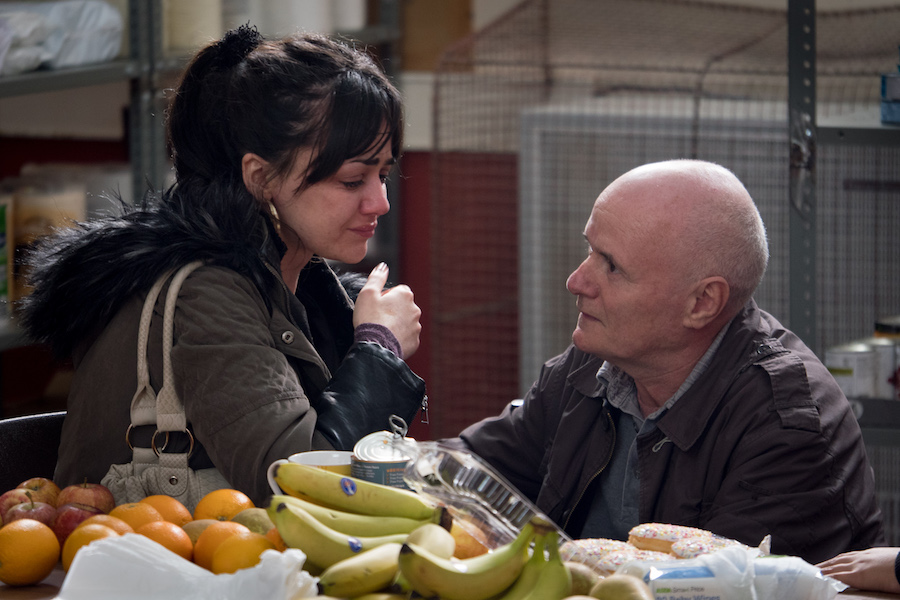‘I, Daniel Blake’ The ironic thing is that even when Ken Loach has made something that feels topical, it’s really just Loach doing Loach. He’s always done his thing, whether anyone, particularly anyone in power, was paying attention. For 50 years, the filmmaker has been one of the great cinematic poets of the U.K.’s working class. Sometimes he ventures abroad (to America with “Bread and Roses,” to Nicaragua in “Carla’s Song”) or to the past (“Land and Freedom,” “The Wind That Shakes the Barley,” “Jimmy’s Hall”). The bulk of his CV, though, are transmissions from today’s lower depths, showing how laborers are in eternal battle against a pitiless system. Even when they are, they try to keep their sense of humor. For better or worse, “I, Daniel Blake” is a Ken Loach film. The difference, though, is something that happened after it won the top prize at Cannes ’16 debut: Brexit. Seen now, the tale of two unemployed people (Dave Johns and Hayley Squires) struggling, and not quietly, with England’s impenetrable bureaucracy takes on an added urgency. All of a sudden, it’s not just another Ken Loach film. It looks like he had his finger on a nation’s pulse, even if by accident. He’s always been there, ready for when the world gets truly terrible. RELATED: The top 10 best films of 2016 (and 15 more that were great, too) Johns is Daniel Blake, a 50-something wood craftsman from New Castle newly on the dole because of a heart attack at work. Thanks to a byzantine bureaucratic nightmare, he is unable to collect unemployment. He spends his days fumbling with website forms that don’t work, with red tape that dictates that he must actively look for a new job despite not been medically fit to return to the fold. His only solace is meeting Katie (Hayley Squires), a sparkplug of a single mother who, thanks to another governmental muck-up, is unable to buy food for her two kids. They team up, to take on the system together, and generally to look out for each other. What follows is to be expected, if you’ve seen a handful of Loaches. There will be righteously angry blue collar Englanders. There will be corny jokes. There will be at least two or three times when the plotting, by Loach’s longtime regular writer Paul Laverty, will turn so grim, and in such a calculated way, that the only response is a mighty slap to the forehead. And there will be times when you forgive it its preachiness because Loach understands the down-and-out like no other. The ideas that drove to Brexit’s success with voters aren’t directly addressed, but you can see, on one hand, the rage against the system that gripped certain voters and, on the other, a system that’s bound to become even more broken once its effects start to come into play. You don’t get the sense that either Daniel or Katie would have voted “yes,” but you can see people desperate to get their voices heard. Still, “I, Daniel Blake” might not be most useful as a film that dwells on the failures of the state. Loach is also a great humanizer of the working class. It’s easy to forget that his films are hilarious. When they’re not screaming at indifferent and hostile government agents, Daniel and Katie eke out some valuable downtime, which are both casually warm and often quite funny. They’re great together and apart; Squires is a particular revelation and one of 2016’s best breakthroughs. Then there are those times that Loach and Laverty simply go too far. Still, even when they do, they always find a way back.
Director: Ken Loach
Stars: Dave Johns, Hayley Squires
Rating: R
3 (out of 5) Globes
‘I, Daniel Blake’ is typical Ken Loach, only more topical

Sundance Selects
Follow Matt Prigge on Twitter @mattprigge


















